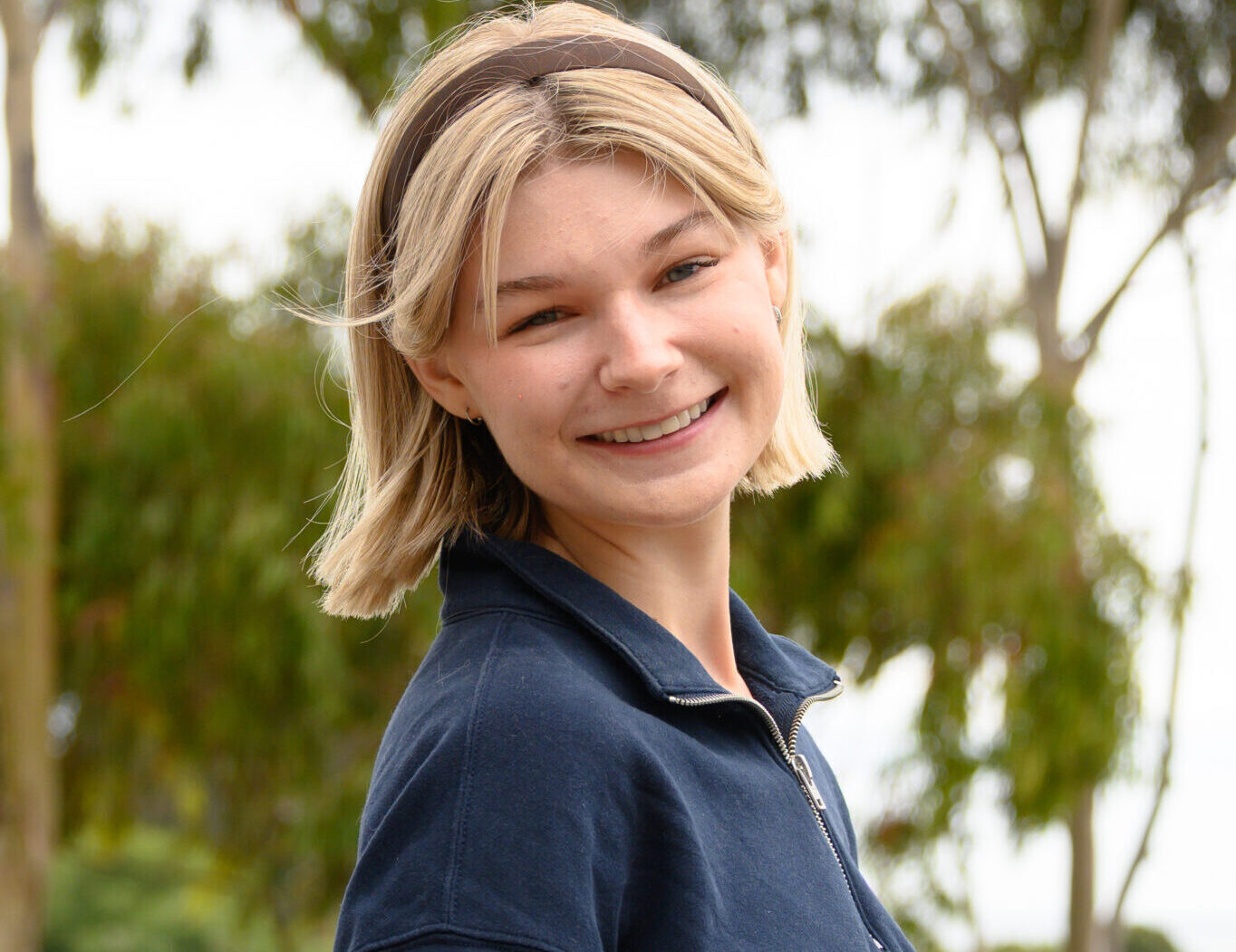The 2025-26 Associated Students Student Advocate General Sydney Bivins spoke with the Nexus regarding her plans to implement protections for undocumented students in her office’s casework and improve access to student resources.

Bivins spent her summer planning how her office can offer resources to vulnerable populations of the student body. Sherine John / Daily Nexus
After joining the Office of the Student Advocate (OSA) as a caseworker in 2023, fourth-year sociology major Sydney Bivins is now serving her third year in the office. As Student Advocate General (S.A.G.), Bivins is responsible for facilitating communications between students and the University in matters of dispute, as well as educating and advocating for students on issues that affect them.
This summer, Bivins and OSA caseworkers have worked on five official cases. Bivins said that one of the main initiatives she has been working on is planning for how her office can offer resources to vulnerable populations in the student body.
Bivins began this work by meeting with the assistant director of the Undocumented Student Services (USS), Gemma Garcia, in order to understand the resources available to students and implement the information in caseworker training.
“I was really wanting to connect with the Undocumented Student Services to have them train our case workers on what their office offers to students, the ways in which undocumented students are specifically vulnerable, what opportunities are available to this population and how formal university processes may be different from those of other students,” Bivins said.
Bivins also aims for her office to collaborate with the USS in a mentorship program in order to host events, such as a “know your rights” event, which would raise awareness and provide resources for undocumented students.
Additionally, Bivins is aiming to educate fellow Associated Students (A.S.) members on this issue through a presentation on A.S. Legal Code at an annual training for all A.S. members during the start of fall quarter. Bivins will present on policy 34, which states that members of A.S. are not permitted to communicate with federal immigration agencies and that any federal immigration officers must present a judicial warrant to enter A.S. spaces.
“I was looking through the legal code and I found policy 34, which is a policy that’s directly inspired by the UC Regent policy,” Bivins said. “It outlines how we, as student leaders, should respond if [Immigration and Customs Enforcement], [Department of Homeland Security] or [Customs and Border Protection] attempts to enter our private spaces without a judicial warrant.”
Bivins said the reason she wanted to present on the policy is because she is “deeply invested in the protection of students’ rights” and aims to ensure that other A.S. members are aware of “what is expected of members of the Association.”
A related project that Bivins has been working on is getting physical signage posted on campus to raise awareness for undocumented students’ rights. Bivins said that administrators must grant permission before hanging up signs around campus infrastructure.
In order to make A.S. resources more accessible to students, Bivins has started to consolidate them in one place on the A.S. website. She said that she made a form for A.S. entities to track services and programs for students.
“We want students to be able to use the services they pay for with their fees,” Bivins said.
The last initiative Bivins has been planning for are improvements and updates to GoGaucho — a mobile and web application developed by OSA’s sub-technology committee — which includes an academic schedule, campus map and dining hall menus. Proposed improvements include a course planner and a dining hall feedback system.
A long-term goal that Bivins plans to work on throughout the school year is to demand more transparency from the Disabled Students Program (DSP).
“Students will go to DSP and bring letters from their doctors or mental health providers and they’ll submit all the right forms, but still get denied without a super in-depth explanation as to why,” Bivins said. “That’s been very distressing for a lot of students that come to our office.”
Additionally, Bivins hopes to work with professors to ensure they have clearly written sections about artificial intelligence (AI) usage in their syllabi.
“A big issue that comes into our office is students being accused of plagiarism — specifically using AI,” Bivins said. “However, there’s a lot of professors that don’t have specific AI policies on their [syllabi], and the university doesn’t actually have a specific policy for AI as of now.”
An overarching initiative that Bivins has focused on this summer is maintaining consistent connections with University offices which will allow for more comprehensive caseworker training and external events. Bivins said that she hopes that these efforts will help OSA become a more robust and reliable resource.
“One thing that I’ve been very focused on is the future of this office and shaping it into a stable and consistent resource for both students and the university administrators to turn to when it comes to mediation between the two parties,” Bivins said.
Within OSA, Bivins has focused on drafting an informal constitution and guide for future students serving as S.A.G., as well as updating forms and templates for casework.
“Everything is being put into place in a way where this office will be like a solid rock for students, not just this year, but in future years,” Bivins said.
A version of this article appeared on p.6 of the Oct. 2, 2025 print edition of the Daily Nexus.




















